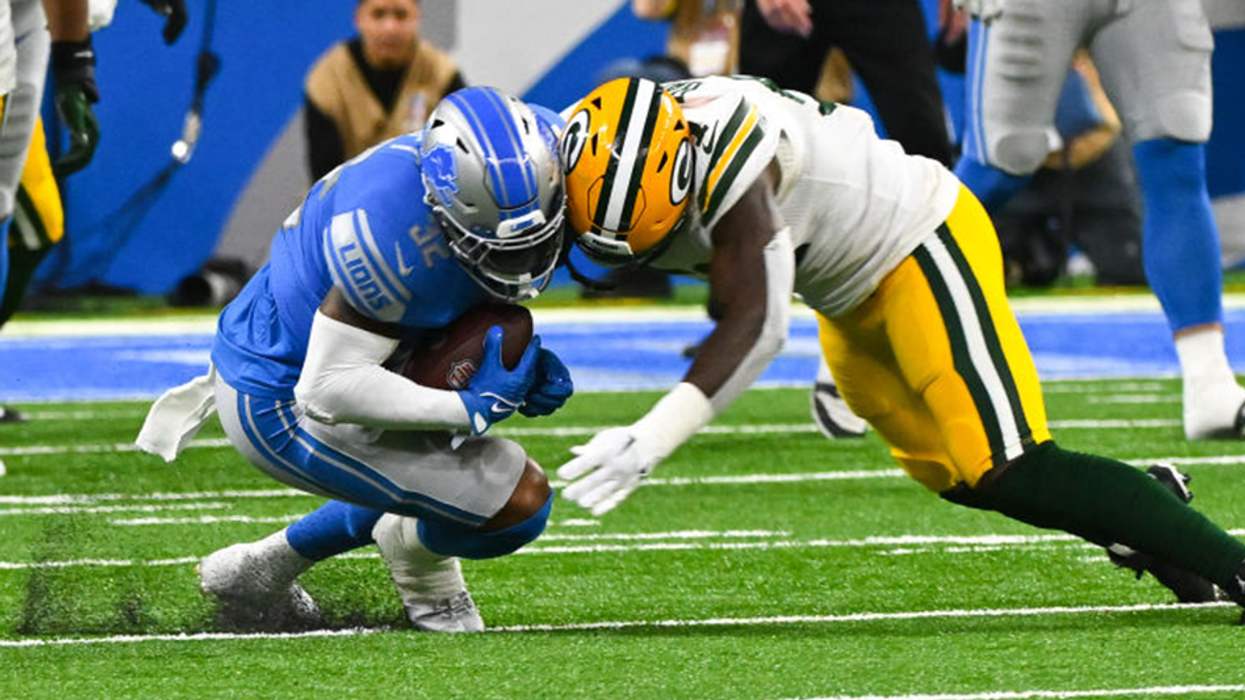
Photo by Steven King/Icon Sportswire via Getty Images

A study on brain damage resulting from collisions and impact in sports suggests that athletes may be affected by the trauma at younger ages than previously thought.
Chronic traumatic encephalopathy, commonly known as CTE, was assessed in the brain autopsies of 152 athletes who died before the age of 30. The study was called Neuropathologic and Clinical Findings in Young Contact Sport Athletes Exposed to Repetitive Head Impacts.
The cause of death for most of the subjects was suicide, followed by accidental overdose.
Scientists determined that in over 41% (63) of the cases the athletes had suffered from CTE. Nearly all of those had mild cases in stages I or II. Just three of the 63 were diagnosed with Stage III CTE.
According to the CTE Society, Stage I includes headaches and loss of attention and concentration. Some experience short-term memory problems, depression, aggressive tendencies, explosivity, and function issues.
Stage II can include all of the above, but most frequently headaches, mood swings, and memory loss. A smaller percentage experience suicidal thoughts and language challenges.
CTE is categorized up to stage IV, which can progress to dementia.
Of the 63 athletes with CTE, 45 of them were men who played amateur sports, not professional.
The median age of CTE was 26 years old; however, the study's author Dr. Ann McKee said that “CTE can begin very early, as early as 17 years, and that it can develop in amateur soccer, rugby, ice hockey and football players, and amateur wrestlers."
In terms of each sport, football players were most represented in the study. Out of 152 brain donors, 92 played football, and 48 had CTE compared to 44 who did not. Football players made up the greatest share of athletes with CTE, accounting for 76% of the total cases of CTE in the study.
Six out of 16 (37.5%) hockey players had CTE, four of whom were amateurs.
Four out of 23 soccer players had CTE, while two of nine amateur wrestlers did as well.
Out of the four rugby players' brains in the study, two had CTE, while the remaining subject with CTE was a 28-year-old female soccer player. She had previously suffered from two concussions and a traumatic brain injury with loss of consciousness for three minutes.
Dr. McKee is a professor of neurology and pathology at Boston University and director of neuropathology care for the Veterans Affairs Boston Healthcare System.
Co-author Jesse Mez is an associate professor of neurology and the Alzheimer’s Disease Center clinical core associate director.
Like Blaze News? Bypass the censors, sign up for our newsletters, and get stories like this direct to your inbox. Sign up here!
Andrew Chapados